Omega 6 fatty acids are essential fats in a healthy diet that the body cannot synthesize on its own. Let’s find out which foods contain omega 6 through the article below.
1 Learn about Omega 6
What is Omega 6?
Omega 6 is an essential fatty acid that the body cannot synthesize on its own, so it needs to be supplemented through daily diet.
Omega-6 plays an important role in maintaining cell structure, supporting immune function and regulating inflammatory responses in the body. You can increase your omega-6 intake by consuming foods rich in polyunsaturated fats such as vegetable oils (sunflower oil, corn oil, soybean oil) and nuts (sunflower seeds, flax seeds, walnuts). To optimize health benefits, make sure to balance omega-6 with omega-3 in your diet.
Omega 6 exists in the following forms:
- Gamma linolenic acid (GLA).
- Dihomo-gamma linolenic acid (DGLA).
- Arachidonic acid (AA).
- Linoleic acid (LA) is the most common.

Omega 6 is an essential fat that the body cannot synthesize on its own.
Health Benefits of Omega 6
Omega 6 may have beneficial health effects such as:
- Reducing bad cholesterol (LDL).
- Reducing the risk of cardiovascular disease.
- May help reduce inflammation.
- Reducing the risk of cancer.
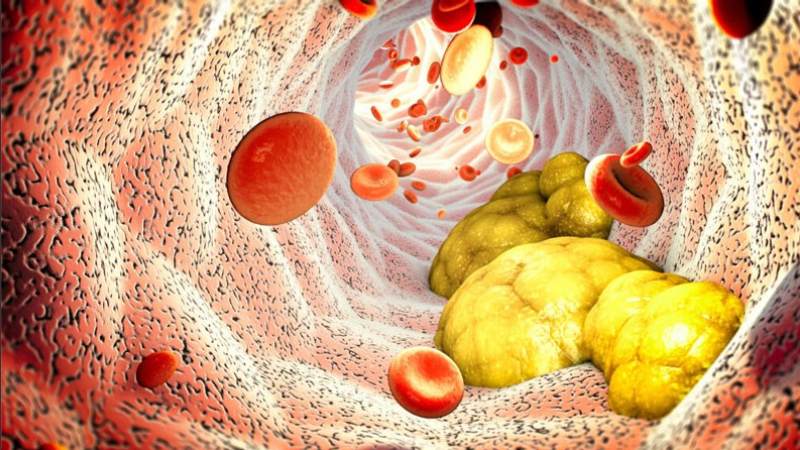
Omega 6 helps reduce harmful cholesterol (LDL) in the body
2 Amount of Omega 6 needed per day
At different ages and genders, the amount of omega 6 needed for the body also has certain changes. According to the US National Institutes of Health (NIH), the recommended amount of omega 6 linoleic acid (LA) needed is as follows:
- Women aged 19–50: 12g per day.
- Women aged 51 and over: 11g per day.
- Men aged 19–50: 17g per day.
- Men aged 51 and over: 14g per day.

Each age and gender will have a different amount of omega 6 needed.
3 Foods Rich in Omega-6
Walnuts
Walnuts are a nutritious nut, containing up to 38.1mg of omega 6 linoleic acid per 100g. At the same time, walnuts are rich in fiber and minerals including manganese, copper, phosphorus and magnesium.
Walnuts are often enjoyed as a snack, made into milk or can be crushed and sprinkled on dishes such as salads, yogurt to increase nutrition.
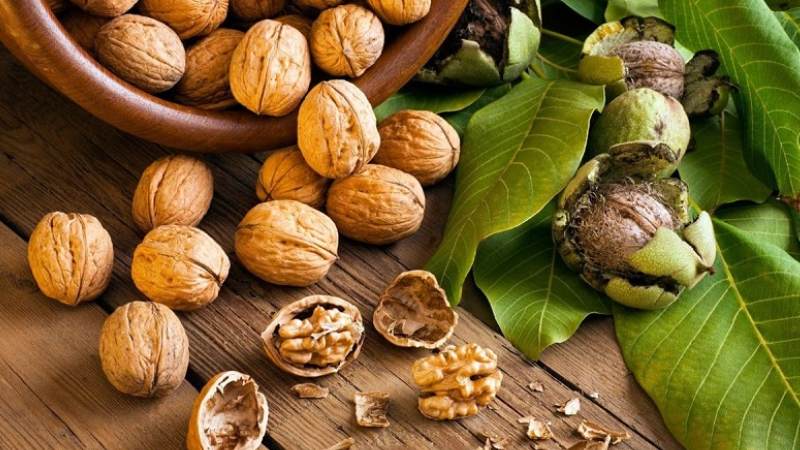
Walnuts are a nutritious nut, containing up to 38.1mg of omega 6 per 100g.
Sunflower Seeds
Sunflower seeds are plant seeds harvested from the stigma of sunflowers, which contain about 37.4 mg of omega 6 linoleic acid per 100g. In addition, sunflower seeds contain many important vitamins and minerals such as vitamin E and selenium, which act as antioxidants to help the body fight cell damage, inflammation and chronic diseases.
With an attractive flavor, soft but crunchy texture, these seeds are often used in the processing of cereals, salads or baked goods.
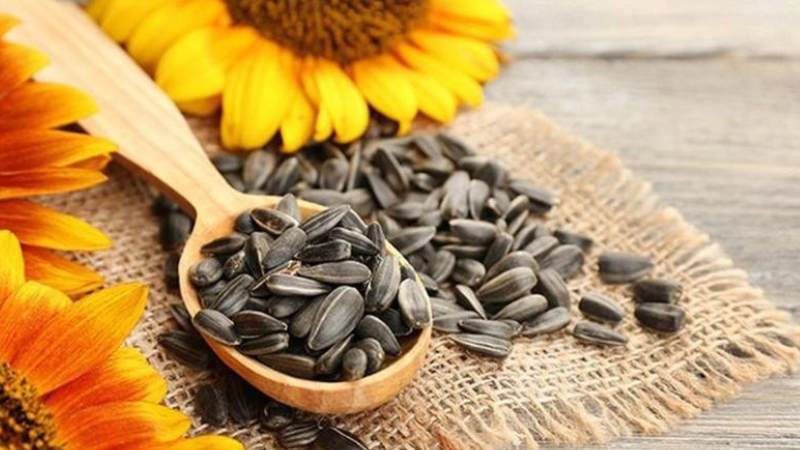
Sunflower seeds are harvested from the stigma of the sunflower.
Corn Oil
100g of corn oil contains 49,382g of omega 6 along with many other nutrients such as minerals, vitamin E,… A study shows that adding about 54g of corn oil to the diet every day can reduce total cholesterol and “bad” LDL, while increasing “good” HDL cholesterol.
However, be sure to choose corn oil that is labeled organic or non-GMO and is 100% USDA certified if you want to ensure that it is not made from genetically modified corn.

100g of corn oil contains 49.382g of omega 6 and many other nutrients.
Peanut Butter
Peanut butter is a thick, creamy sauce made from roasted peanuts. Every 100g of peanut butter contains up to 12.3 mg of omega 6 in the form of linoleic acid. Moreover, peanut butter is not only rich in healthy fats and proteins, but also contains many important nutrients such as niacin, manganese, vitamin E and magnesium.
You can eat peanut butter with bread for breakfast or mix a glass of peanut milk for a snack to provide more healthy nutrients for the body.
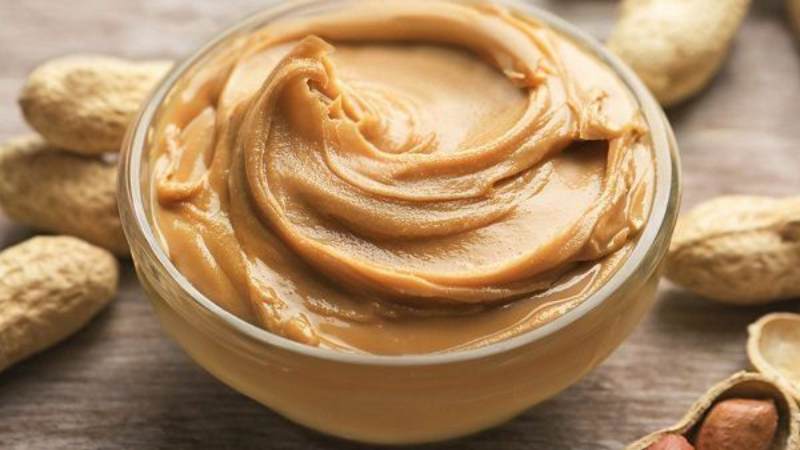
Peanut butter is a thick, creamy spread made from roasted peanuts
Avocado Oil
Avocado oil is an oil produced from avocados, which can be used as a beauty product and a source of nutrition for the body. Avocado oil contains about 12.53 mg of linoleic acid per 100g and a large amount of antioxidants that help improve cardiovascular health.
Avocado oil is usually resistant to high temperatures without degrading or oxidizing. This makes it ideal for using avocado oil in high-temperature cooking methods such as baking, roasting, sautéing and frying.
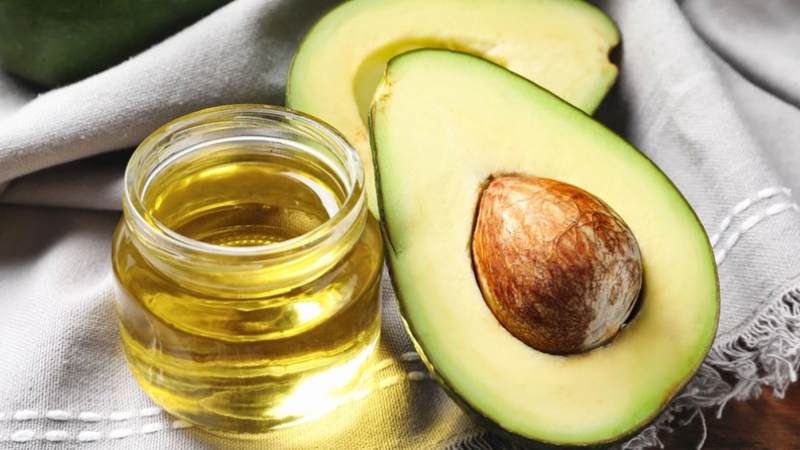
Avocado oil contains about 12.53 mg of linoleic acid per 100g.
Almonds
Almonds are a type of nut that originated in the Middle East but are now grown worldwide. The nutritional value of almonds is very high with about 12.32 mg of linoleic acid in every 100g of almonds and a great source of protein and fiber such as vitamin E, manganese and magnesium.
Almonds can be eaten directly as a snack or processed into milk for daily drinking. In addition, you can roast them and use them to make smooth almond butter or cream.
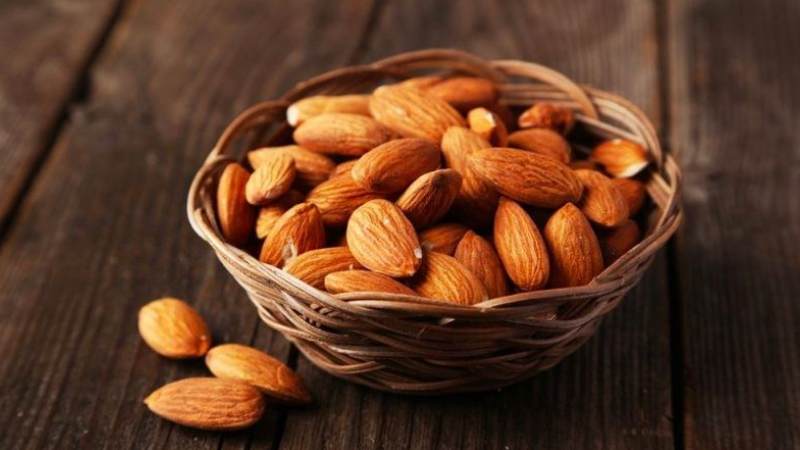
The nutritional value of almonds is very high, about 12.32 mg of omega 6 per 100g.
Cashews
Cashews are a nut with a unique shape and a rich taste. Every 100 grams of cashews contain 7.78 mg of linoleic acid. In addition, cashews are also rich in micronutrients including copper, magnesium and phosphorus.
A popular way to use cashews is to make ice cream by soaking them overnight and blending them in a food processor. Cashew ice cream can help enhance the flavor, texture and nutritional content of salad dressings and soups in meals.
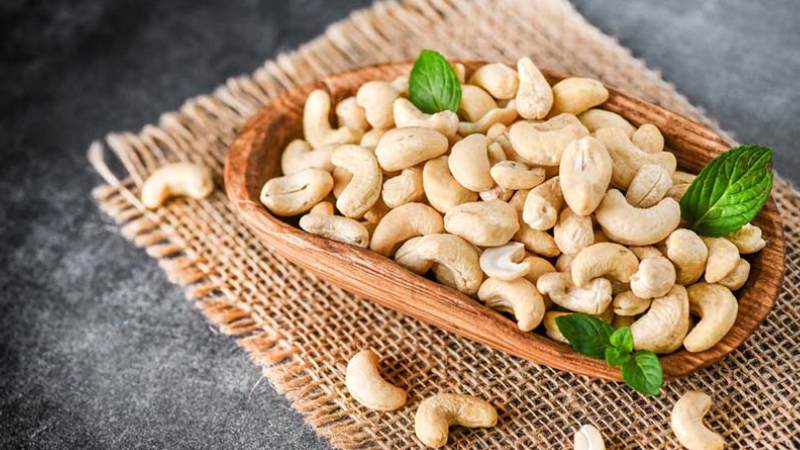
Every 100 grams of cashew nuts contain 7.78 mg of linoleic acid.
Tofu
Tofu is a dish made by coagulating soy milk and pressing it into a soft mass. 100g of tofu contains 4.97mg of linoleic acid and a large amount of important nutrients including protein, iron, calcium and manganese.
You can process tofu into nutritious soups and desserts in many different ways.
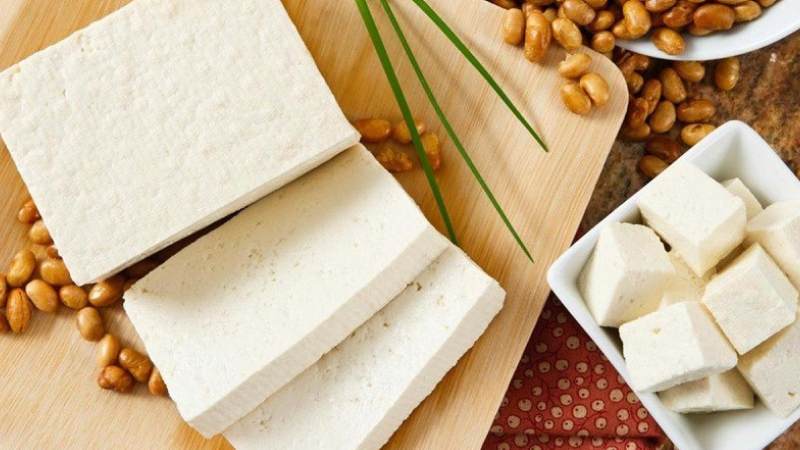
100g of tofu contains 4.97mg of linoleic acid and many other nutrients.
Eggs
Eggs are a nutritious food source, providing a significant amount of protein, selenium, riboflavin, and linoleic acid – an essential fatty acid. Each 100g of eggs contains about 1,188 mg of linoleic acid.
With abundant nutrients and easy processing, eggs are often used in daily diets. In addition to frying, frying or boiling, eggs can be added to burgers, sandwiches, salads to increase the nutritional content of the body in meals.

Eggs are a food source high in important nutrients.
Pork tenderloin
Pork tenderloin is a lean, soft meat with long, thin fibers, high adhesion and no fat. This type of meat is usually located in the front, running along the spine and right below the hind legs of the pig.
Every 100g of pork tenderloin contains about 2,535g of omega 6 and many essential vitamins for the body such as thiamine (52%), niacin (37%), vitamin B6 (30%), riboflavin (21%) and vitamin B12 (8%). In addition, pork tenderloin is also low in calories.
Therefore, consuming pork tenderloin can help reduce fat intake, promote healthy digestion, improve skin health, cardiovascular health, reduce cholesterol and high blood pressure.
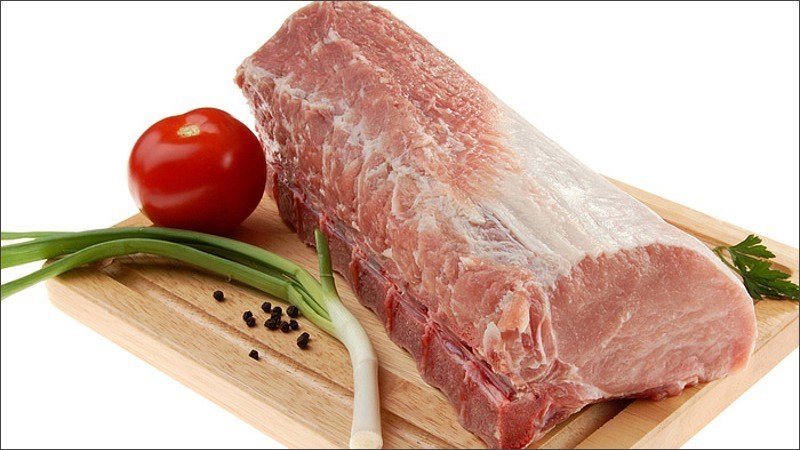
Every 100g of pork tenderloin contains about 2,55g of omega 6 an3d many essential vitamins.
Grapeseed Oil
Grapeseed oil is a product extracted from grape seeds. This activity helps reduce waste of raw materials in the wine production process.
In 100g of grapeseed oil contains 64.249g of linoleic acid along with many vitamins, minerals that support anti-oxidation, anti-inflammation, anti-bacterial and anti-tumor,… Grapeseed oil has a high smoke point, so it is often very easy to process and can be used in salads.
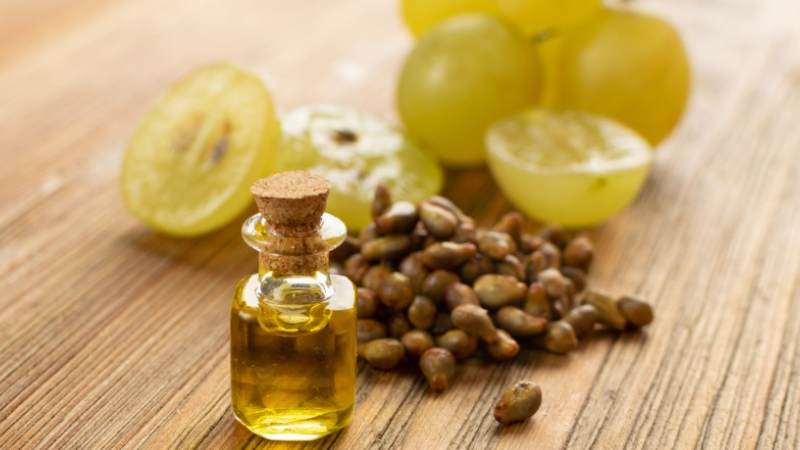
100g of grape seed oil contains 64.249g of linoleic acid and many vitamins and minerals.
Safflower Oil
Similar to other vegetable oils, safflower oil is high in monounsaturated fats that can help improve heart health. Every 100g of safflower oil contains up to 12.7g of linoleic acid – a common form of omega 6.
Safflower oil has a neutral flavor and is often used in stir-fries, grilled dishes, salad dressings and sauces.

Every 100g of safflower oil contains up to 12.7g of linoleic acid – a common form of omega 6.
Hemp Seeds
Hemp seeds are the seeds of the hemp plant, scientifically known as Cannabis sativa. In addition to containing about 27.5 mg of omega 6 in the form of linoleic acid per 100g, which is beneficial for heart health, hemp seeds are also a rich source of protein, vitamin E, phosphorus and potassium.
Hemp seeds can be used in smoothies, cereals, salads and yogurt to increase the amount of nutrients provided to the body
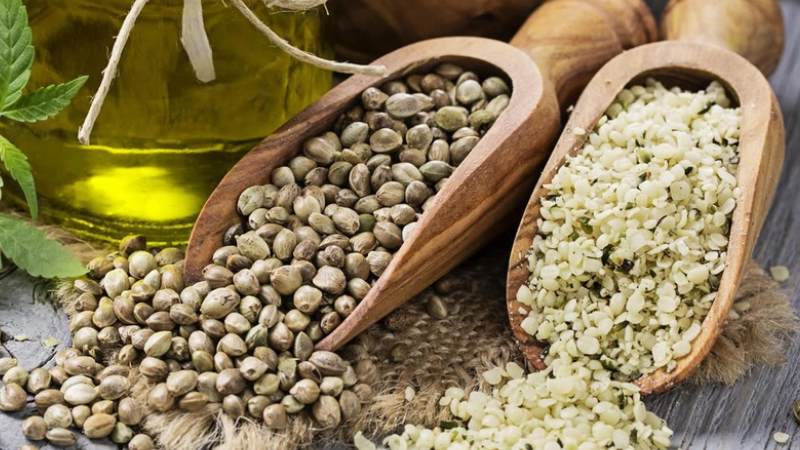
Hemp seeds are also a rich source of omega 6, protein, vitamin E, phosphorus and potassium.
4 Notes when using Omega 6
Although it brings many beneficial effects to health, you should also pay attention to some issues when using omega 6 such as:
- Do not use too much Omega 6: Omega 6 is a fat, so when used excessively, it can lead to some side effects such as bloating, indigestion, abdominal pain, dizziness, nausea. In addition, the omega 6 fat group can naturally lower blood pressure, which can cause blood pressure to drop too low in people with low blood pressure.
- Combining Omega-6 and Omega-3 supplements: Omega-6 fatty acids are essential fats that play an important role but should still be consumed in moderation. At the same time, there must always be a balance between omega 6 and omega 3 with a ratio of 2:1 to bring about a healthy diet.
Hopefully, this article has provided you with the necessary information about omega 6 as well as food sources that can help supplement omega 6 for the body. Please share this article with everyone if you find it useful!





